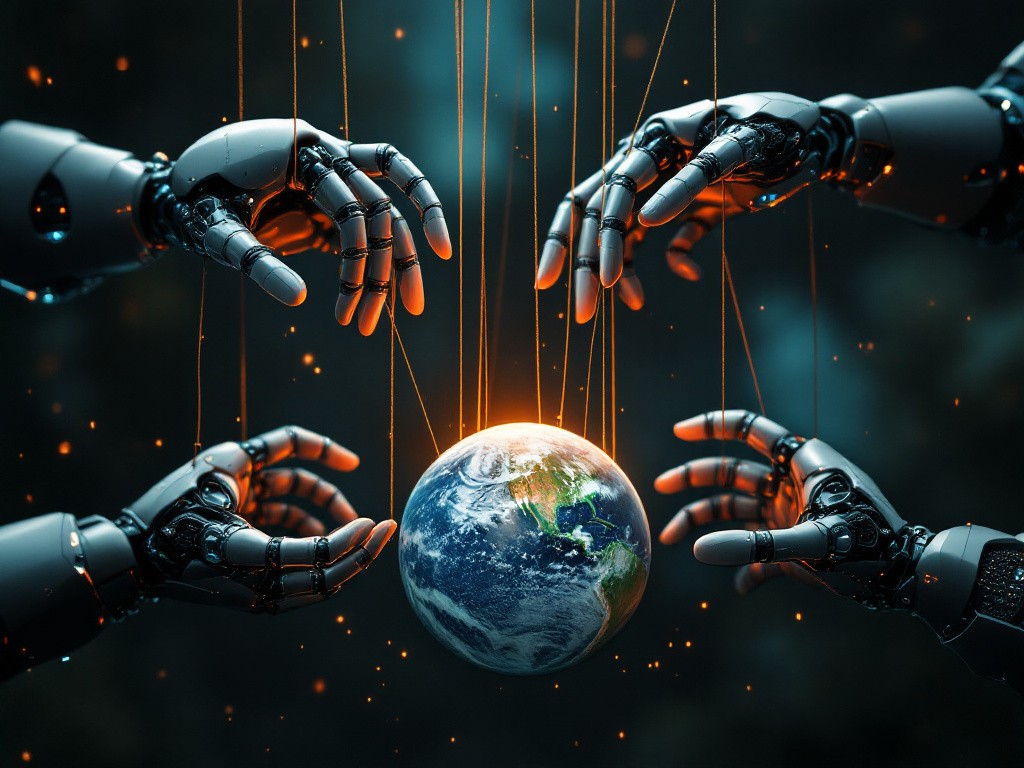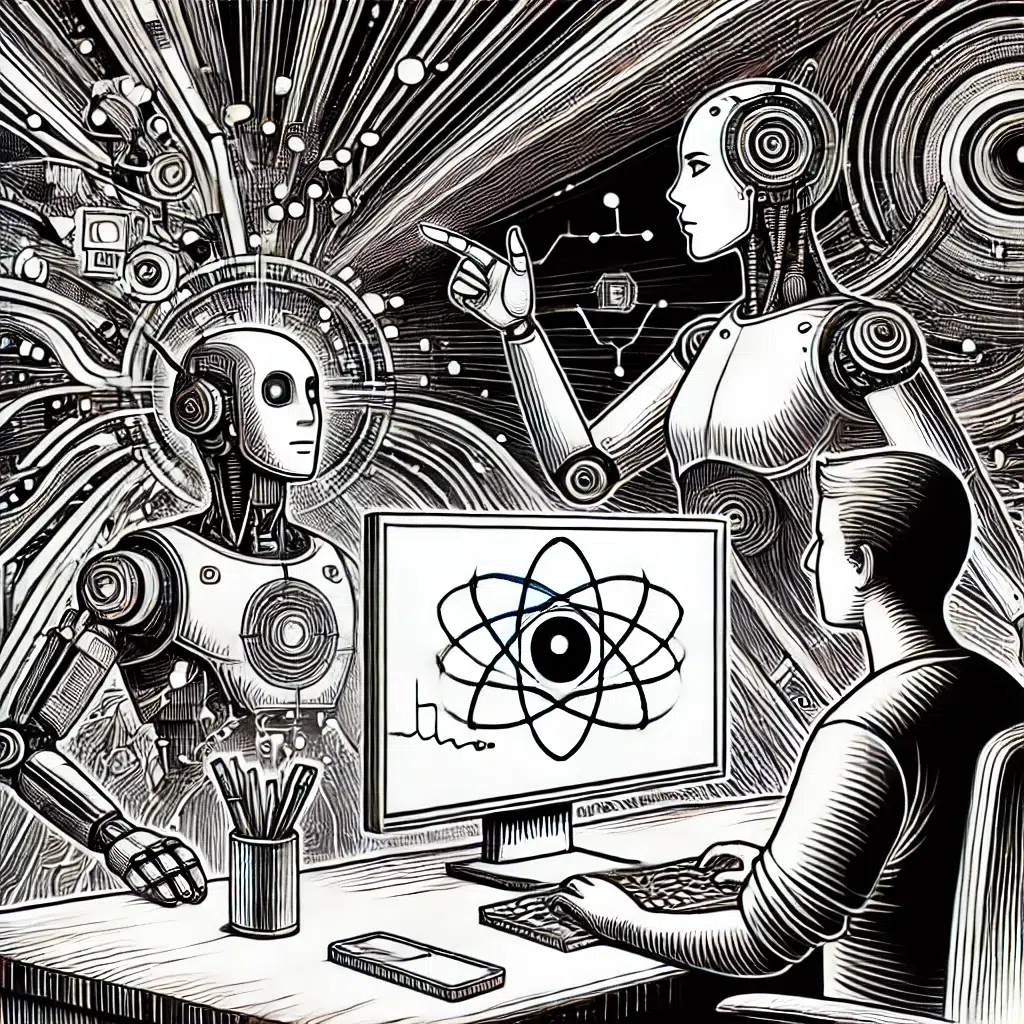
Technology in Our Lives
Technology is quickly becoming part of everything we do in today’s fast-paced world. It helps us manage our homes more easily and is transforming how we work. Geoffrey Hinton, often called the ‘Godfather of AI,’ is making big predictions about what’s coming next. He believes that artificial intelligence is not just here to assist us; it could soon surpass human intelligence in many areas. This development could fundamentally change work, healthcare, and even what it means to be intelligent.
These changes could shake up our jobs and healthcare and alter how we think about intelligence itself. Wondering how all of this could impact your career or business? Let’s explore Hinton’s insights and understand why staying informed might be your ticket to thriving in this exciting future.
The Future of Intelligence
Geoffrey Hinton suggests a future where smart machines surpass human capabilities in certain areas—like analyzing vast amounts of data or making complex decisions. This possibility raises big questions about our roles, responsibilities, and what it means to be human. If AI becomes more intelligent than us, how do we ensure it aligns with human values and works in our best interest?
We need to understand these changes to address new ethical challenges and adapt accordingly. If you’re curious about how technology is reshaping our lives, check out the comprehensive AI Index Report by Stanford. You can also visit AI Simplify Now’s blog for articles that show how to make the most of modern technology in your day-to-day life.

Ethical Implications of Advanced AI
The rise of smarter technology comes with significant ethical questions. Hinton often talks about the risks of mismanaging AI—such as bias, misuse, and even loss of control over intelligent systems. How do we ensure that these powerful tools are used responsibly? It’s not just up to tech creators—we all have a role in making sure these systems are beneficial for everyone.
We need collective guidelines to guarantee that advanced technology improves our lives. You can learn more about ethical tech practices from the Stanford Human-Centered Artificial Intelligence (HAI) Report or visit AI Simplify Now’s Resources page to explore AI ethics in a straightforward way.
Preparing for a Smarter Future
As technology becomes smarter, it’s crucial that we grow and learn with it. Hinton believes that staying relevant will require continuous education—understanding how AI works and how to use it effectively. Whether you’re a beginner or aiming to specialize, lifelong learning will help you stay ahead.
At AI Simplify Now, we offer courses and training programs to help you do just that. If you’re looking for additional resources, MIT has an excellent guide to help you prepare for what’s coming next.
Navigating the Changing Job Market
Technology in the workplace is transforming how we operate. Hinton predicts that automation will replace many traditional roles, especially those involving repetitive or predictable tasks. But it’s not all bad—automation also creates new opportunities in roles that require creativity, problem-solving, and empathy—skills machines can’t replicate the way humans can. Developing these skills will help you stay irreplaceable.
For businesses, technology boosts productivity but also demands foresight in team planning. Investing in employee training to adapt to these changes is essential. Policymakers should also focus on reducing social inequalities by supporting retraining and creating new opportunities. For more information, check out the AI Index Report.
Opportunities in a Tech-Driven World
Technology may disrupt some jobs, but it’s also creating new careers—like AI specialists, data analysts, and machine learning engineers. Hinton points out that fields like healthcare will see significant benefits, with AI improving diagnostics and enabling personalized treatment. Creative fields will also gain new tools to create and share content in more exciting ways.
To remain competitive, stay adaptable and embrace technology’s potential. By doing so, you could discover a fulfilling path in this evolving landscape. If you’re interested, explore AI career opportunities and skill-building resources from MIT.
Balancing Automation and Employment
Automation is here to stay, but that doesn’t mean all jobs will vanish. Hinton notes that while machines can take over certain tasks, they also allow us to focus on meaningful work. Jobs will evolve. Businesses should use automation to simplify repetitive tasks, enabling employees to focus on creative and strategic work.
Governments and companies need to collaborate to create environments where people can learn new skills and transition to new roles. For more on balancing automation and employment, explore the Stanford AI Index or visit AI Simplify Now’s services page to learn more about managing technology in the workplace.
Bridging the Tech Divide
Technology is advancing rapidly, but it must benefit everyone—not just a select few. Hinton emphasizes that one of the biggest challenges is ensuring AI advancements are inclusive. We must improve digital literacy and guarantee that everyone has access to the internet and essential skills.
Sharing technology’s benefits widely ensures everyone gets a fair shot at success. Learn about inclusive AI policies from Stanford HAI and explore the United Nations’ digital inclusion initiatives to find out more.
FAQ Section
What are Geoffrey Hinton’s key predictions?
Geoffrey Hinton predicts that advanced technology may eventually surpass human abilities in some areas, fundamentally changing how we work, learn, and interact. He also raises ethical challenges such as control, accountability, and ensuring AI aligns with human values.
How will automation impact jobs?
Automation will replace some repetitive tasks, but it will also create new opportunities. Developing skills like creativity and emotional intelligence will help you stay ahead in an automated world.
What skills are important for a tech-driven future?
Focus on creativity, problem-solving, and emotional intelligence. It’s also helpful to learn the latest technology tools and understand key concepts.
How can society bridge the digital divide?
Making technology education accessible is key. Governments, schools, and private companies should collaborate to provide affordable training, improve infrastructure, and ensure everyone has access to tech resources.
What ethical issues come with advanced technology?
Superintelligent systems raise questions about control, accountability, and bias. Transparency and ensuring these tools align with human values is essential for ethical development.
How will advanced tools impact healthcare?
Emerging technologies will help doctors diagnose diseases more accurately, personalize treatments, and make healthcare administration more efficient, ultimately improving patient care outcomes.
